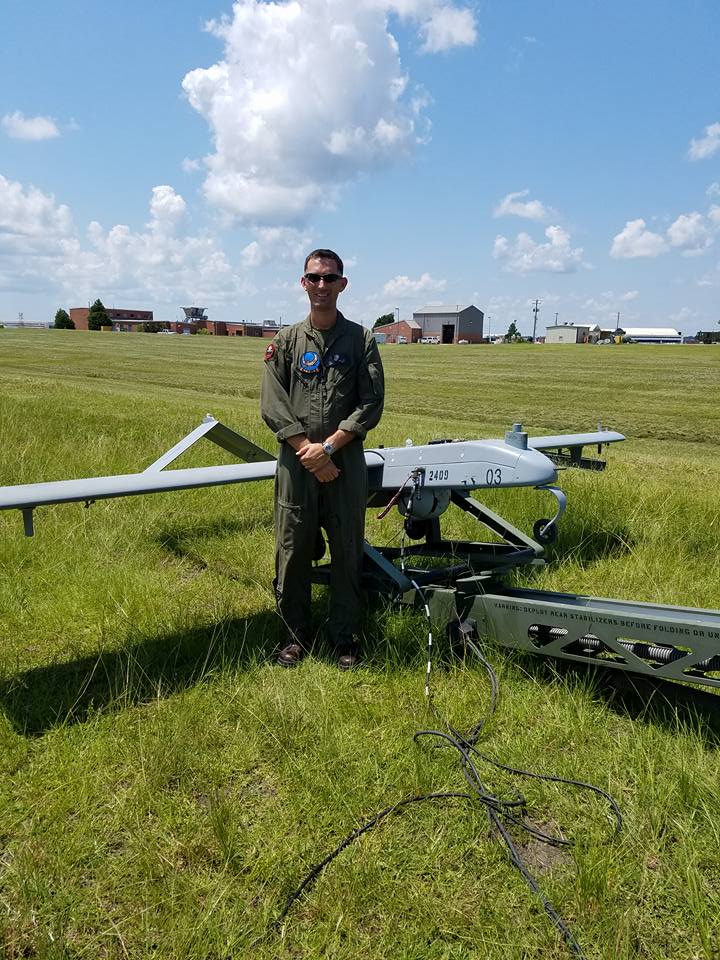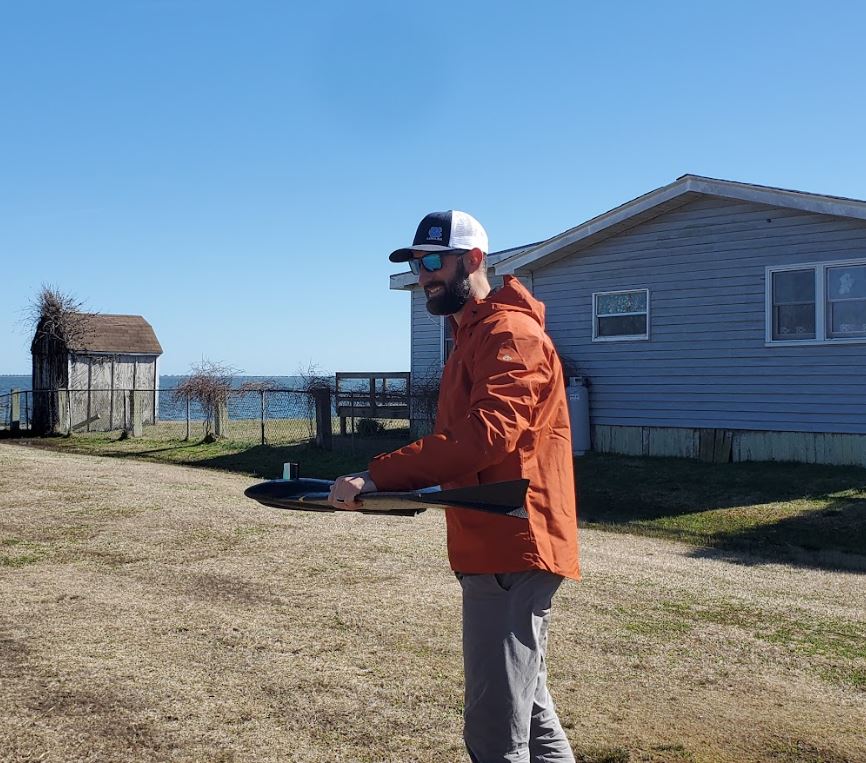From U.S. Marine Corps to UNC-Chapel Hill, Walton brings drone expertise to environmental research
June 26, 2023
Troy Walton is one of the newest senior research associates at the UNC Institute for the Environment, leading research and growth in the Carolina Drone Lab, where he is helping to pioneer the use of drones to study ecosystems and analyze environmental resources. Almost as interesting as the research Walton leads, is the unconventional path that he took to get to here.
Walton attended Eastern Kentucky University, where he earned a bachelor’s degree in aerospace management. After graduating, he entered the United States Marine Corps. He served as an artillery officer for four years and was deployed to Afghanistan, where he was selected to become an unoccupied aircraft commander. Walton spent three years flying drones for the military before leaving the Marine Corps shortly after the birth of his daughter.
After his time in the military, Walton became involved with a collaboration between UNC-Chapel Hill and the United States Department of Defense (DoD) that taught DoD environmental specialists how to use drones as a tool for natural resource management. After developing an interest in using his skills as a drone pilot for environmental projects, he pursued a master’s degree in geographic information science (GIS) from Unity College.
“At first, my specific role on this project was to teach people how to fly drones. I quickly realized that only knowing how to fly the drone and not analyze the data was fairly pointless, so I enrolled in a GIS program and fell in love,” Walton said. “I followed a rather non-traditional path into the field but I believe it helped me develop into a well-rounded professional.”
After receiving his degree in early 2023, Walton is now a lead researcher at the UNC Institute for the Environment’s Carolina Drone Lab. He is involved in several projects, including a partnership with the U.S. Environmental Protection Agency, which includes emissions monitoring for controlled forest fires, oil burns, and ordnance disposal. Walton also engages with students, bringing remote sensing to various courses from the UNC IE Highlands Field Site to Study Abroad in Ecuador.
“We try to develop a pattern of life for the particular ecosystem we’re looking at, change over time, whether it be marshes or forests. We have worked with students at the Highlands Field Site gather high-resolution data for the past two years monitoring hemlock trees infested with the hemlock woolly adelgid, using drones to track infestation and creating a a database overtime,” Walton said.
Another project that Walton leads is using drones to study marshes and their ability to adapt to local sea level rise. By collecting high resolution imagery, Walton and fellow researchers are able to analyze the marshes’ ability to accumulate enough sediment to keep up with sea level rise and track shorelines overtime.
After completing his master’s degree, Walton felt that the UNC Institute for the Environment was a natural transition from his previous work.
“I really enjoy the environmental aspect and trying to make a positive impact on the degraded environmental state that the world is currently in,” Walton said. “I believe that drones and GIS can have a huge impact on it. I want to be a part of it, and I feel like the Institute for the Environment is the place where I can make those changes and have a positive influence.”
During his time at the Institute, Walton has particularly enjoyed collaborating with people of various backgrounds.
“Now that I’m back in civilian life, and especially since I’ve started working at UNC-Chapel Hill, I’ve been able to work with various organizations, different types of people and cultures, and it’s been a great learning experience for me,” Walton said. “Collaboration is a new found love and I really enjoy learning from and working with individuals with varying backgrounds.”
Story by Matthew Ng
Matthew Ng is a recent graduate from UNC-Chapel Hill. A native of Raleigh, North Carolina, Matthew recently completed a double major in journalism and political science. Outside of his work as a communications intern for the Institute for the Environment, he has experience in documentary storytelling and reporting on Chapel Hill local politics. After graduating in 2023, Matthew plans on attending graduate school.



